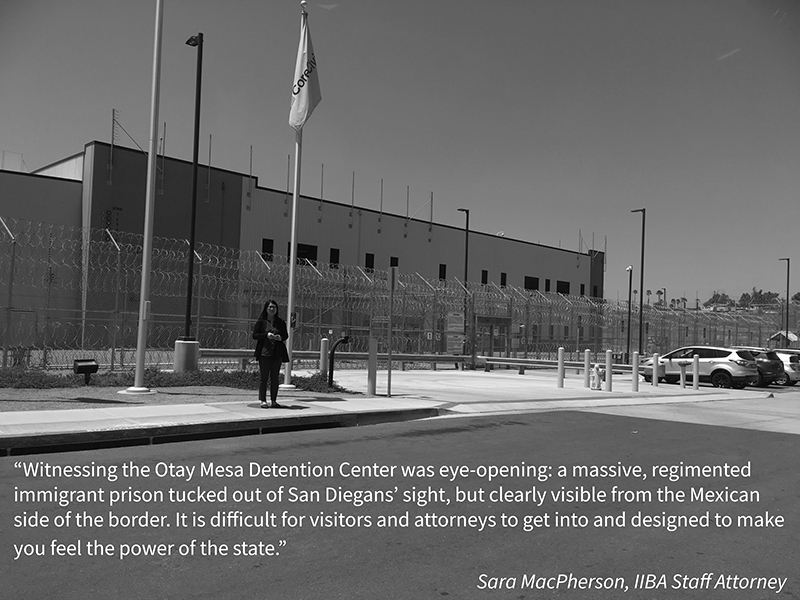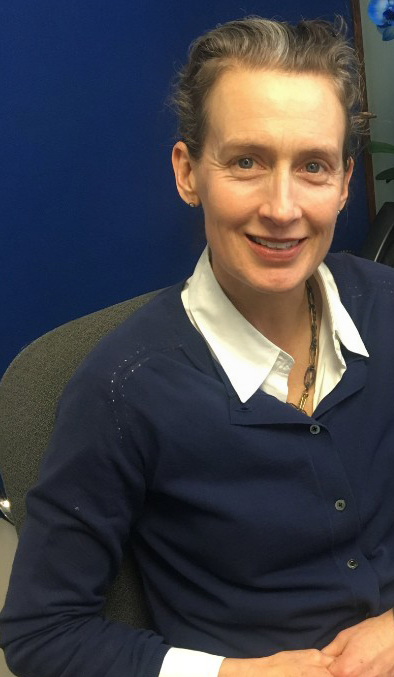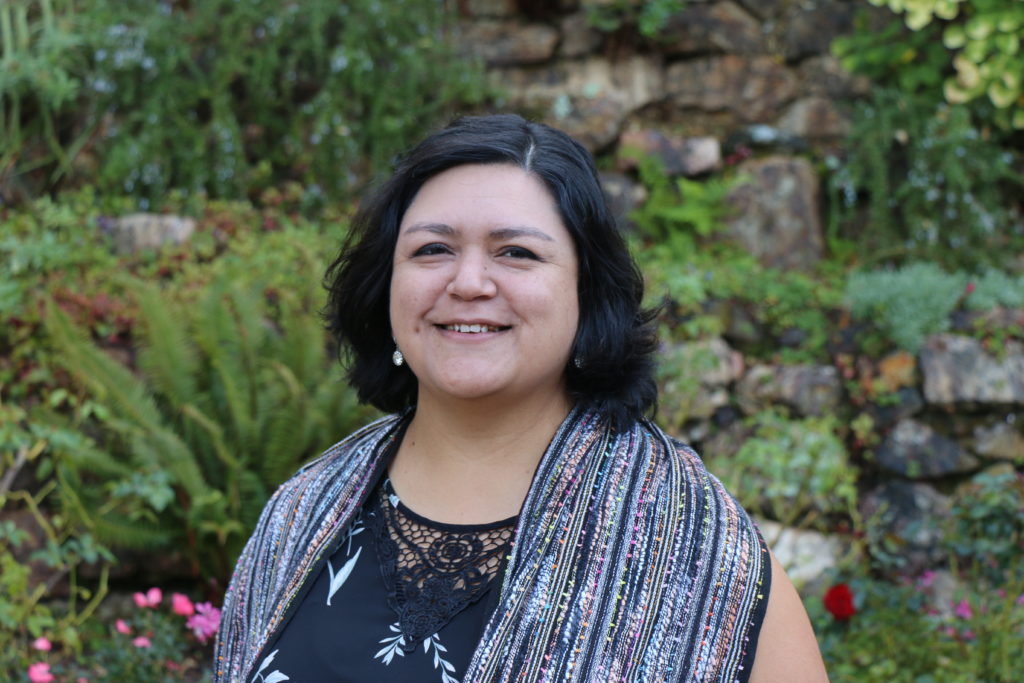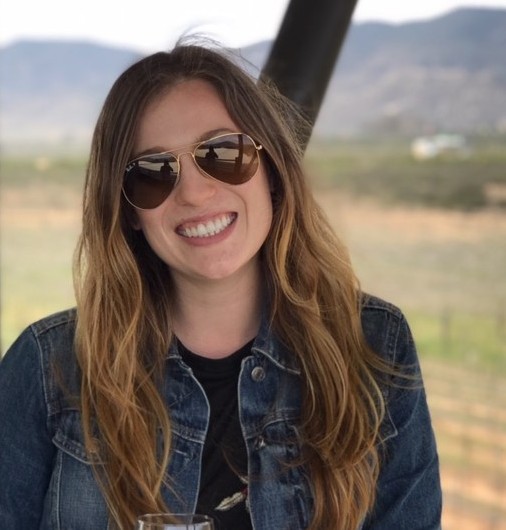
We are seeing it in the news and in our communities every day: immigrants are under attack. The young children whom our government separated from their parents and detained–they continue to wait, indefinitely, to reunite with their families.
This is unconscionable, our government taking children from their parents. Nevertheless, this is our reality.
In response, IIBA deployed six staff members to the border to give witness to what is happening, to stand for the rights of people who have crossed the border, to serve as translators, to provide much-needed legal expertise, and to bring compassion to those who have received far too little of it.
Below, these staff members share their experiences and impressions.
Laura Ratcliff
There is a sense of dread when you walk into OMDC. How privileged I felt when the gates shut behind me and I knew I could walk out at any time. How sad the realization that those “housed” inside were in limbo, living each day with uncertainty, not knowing when freedom would come, if it would come. I saw my daughter’s face in theirs, her voice in theirs. And yet, the glimmer of hope was brighter and somehow I could see, somewhere down the road, their faces and voices as free, protected and fearless as hers.
My hope is that, through us, the individuals we met at OMDC heard our message – that seeking asylum is not a crime, that America is supposed to be better, that not everyone here believes separating families is appropriate or harmless, that families do not belong in detention; that they are human and have the right to live a life free of violence, corruption, and hate. And to those of us that have the liberties we often take for granted – We cannot stay silent on this matter. Protest, donate, and volunteer.
Amy Wang
At our orientation at the Immigration Justice Project Monday morning, one thing they said during the training struck a chord in me: everything we do is better than nothing. The most eye-opening experience for me was when we had the opportunity to observe court proceedings. It was painfully clear how much a difference not only having an attorney, but most importantly a decent one, can make in a case. Even though the judge we observed was fair in her rulings, I couldn’t help but tense up when those representing themselves were being questioned.
Beyond the lack of legal expertise, there are so many other obstacles that unrepresented immigrants face in detention, so many ways their cases could go sideways. They might get an anti-immigrant judge. They might get a bad court interpreter. And yet the stories we heard in the detention facility were ones of resilience, perseverance, and yes, even hope. From English proficient detainees helping others translate documents to detainees forming pacts to help pave the way for others once they are released on bond, it is amazing to hear how people come together even in the bleakest of places.
Thinking back to the handful of people I was able to meet, I know that for them, it really was better than nothing.
Sara MacPherson
Witnessing the Otay Mesa Detention Center was eye-opening: a massive, regimented immigrant prison tucked out of San Diegans’ sight, but clearly visible from the Mexican side of the border. It is difficult for visitors and attorneys to get into and designed to make you feel the power of the state.
The asylum clients I worked with were both from Cameroon. The young woman I helped was the same age as my daughter, 19 years old. It took my breath away to think of the ordeal this young woman endured in Cameroon, including jail and sexual abuse, followed by a truly epic trans-global journey that she made on her own.
In order to “make bond” and gain release from detention, detainees have to show that they are neither a flight risk, nor a danger to the community. Getting released on bond is critical, especially for immigrants who have families here in the United States. Release on bond means that they can continue to work, support themselves and their families, and avoid family separation.
Karla E. Márquez
In reflecting on this experience, it’s difficult to determine who made the most impact: me as a volunteer assisting asylum seekers, or the asylum seekers who trusted me with their stories. It takes a lot of strength and patience to share a story of survival with a stranger. I appreciate every minute spent with the survivors detained at Otay Mesa Detention Center because they gave me the opportunity to practice newly acquired skills.
The training I received from the IJP staff was practical, and impacted the way I provide services to my own clients back in Napa. I have a better grasp of what vulnerable community members can do to prepare in case immigration comes knocking at their door. It has also personally impacted me because I returned to work a more confident advocate for our clients. This was both a valuable professional development experience and a reminder of how the work we do every day is part of a larger fight to protect human dignity.
Rachael Winkler
Spending time in the detention center provided me with some context for our work I had previously been missing. I knew about Core Civic, and other private prison companies, and the money they had poured into the Trump campaign, but I did not know what the bars on forced migration looked and felt like until I worked with the ‘detainees’. Watching people without an attorney speak to their judge in court provided one of the most important takeaways of the week, people need competent representation.
Vanessa Hatfield
Here in Napa, there were a few weeks where ICE had a strong presence, so many people came in afraid since they had just watched their family members being taken away and weren’t sure of their rights in the process. I wanted to go down to the border to understand what life was like on the inside of a detention center. I knew going to the Otay Mesa Detention Center to help asylum seekers detained inside would allow me to provide stronger legal support back in Napa, especially as our office starts to take on more asylum applications.
The hardest part of the experience for me wasn’t hearing the many stories of persecution and trauma. I knew that was going to be difficult and had prepared for it. What I didn’t prepare for was the feeling of not wanting to leave. I wanted to make sure the clients were prepared, that their applications were in order, that they had the best legal advice and knew how to represent themselves in court. I wanted to be in there all day, every day to follow them through each and every step and to see each case through to the end. Before going, I didn’t think I would feel that way. Walking out of the detention center each day was the hardest part. Knowing that I got to go home while they didn’t would tear me apart every day. It’s crucial that the people detained have the proper legal support. The difference that it makes for them is huge.





